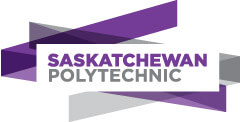About Continuing Care Assistant Certificate in Saskatchewan Polytechnic
Program Overview
Demand for health-care workers is high, and that includes demand for continuing care assistants. If you enjoy caring for others, and if you want to get into the workforce quickly, Saskatchewan Polytechnic’s Continuing Care Assistant program might be just what you’re looking for.
As a continuing care assistant, you’ll work directly with clients in long-term care, home care, assisted living, some areas in acute care, and even special needs classrooms. You’ll help them with mobility, personal care, assisting them to eat their meals, and medication monitoring. It’s a face-to-face, people-focused job.
Saskatchewan Polytechnic's Continuing Care Assistant program is a one-year certificate program that you can take in Saskatoon, Regina or Prince Albert. You can also take it through your local regional college or through part-time distance Flexible Learning.
The program combines hands-on classroom learning with practical clinical experience. You’ll build knowledge and skills in:
- addressing individual psychosocial needs;
- administering personal care;
- dementia management strategies;
- gerontology (a major area of study);
- long-term care philosophy in different settings;
- promoting independence in a safe environment;
- working with individuals with different physical and cognitive impairments; and/or
- working with people of different cultures.
Your clinical work experiences will give you a taste of different work settings. Under the supervision of a buddy or staff member, you’ll work directly with clients in home care, long-term care and acute care settings. It’s a great way to build your skills and your confidence.
Is it a fit?
Continuing care assistants have been called “the eyes and ears of the frail and vulnerable.” You need to be a caring, patient person, with an upbeat attitude and good people skills. Your most important asset is simply a desire to improve quality of life for others.
Your Career
Continuing Care Assistant graduates enjoy high employment rates. You could work in a home care setting, long-term care facility, private care home, acute care facility, integrated facility, supportive housing or special needs classroom. You’ll work as part of a health-care team under the supervision of registered nurses, registered psychiatric nurses or licensed practical nurses.
Look for job postings in Saskatchewan’s 12 regional health authorities or the Athabasca Health Authority.
Academic qualification equivalents:
- Grade 12 or successful completion of fifteen (15) post-secondary credits from a recognized institution
English language requirements (one of the below):
- IELTS : Overall minimum score of Band 6.5 with a minimum score of 5.0 in each component.
- TOEFL : An overall minimum score of 81 on the Internet-based Test of English
- PTE : A minimum score of 63 with minimum component scores of 50.
Saskatchewan Polytechnic Highlights
| Type |
Public |
| Campus Setting |
Urban |
| Application mode |
Online and Paper mode available |
| Graduation rate |
62% |
| Acceptance rate |
96% |
| Number of Students |
16,008 |
| Overall cost of living |
14,762 CAD |
| Academic calendar |
Semester based |
| % of International students |
6% |
| Number of campuses |
4 |
| Medium of instructions |
English |
| Undergraduate Tuition fee |
14,044 CAD |
| Postgraduate Tuition fee |
16,426 CAD |
| Cost of living |
694 -1147 CAD per month |
Saskatchewan Polytechnic First-Year Tuition Fees And Living Expenses For International Students
Over the course of one academic year, the following graph displays tuition and living expense estimates in Canadian currency for one full-time international undergraduate student. Please bear in mind that these are only estimates; actual pricing will vary depending on your needs and preferences. Other factors to consider include currency changes, visa and study authorization fees, and vacations back home.
- For international students, the overall fees will range from:-
| Particulars |
Amount |
| Administrative fees |
50.00 to 150.00 CAD |
| Application fees |
150 CAD |
| Student association fee |
95.00 to 445.00 CAD |
| Non-refundable fee at the start) |
1,000 CAD |
| Tuition fee range |
6,195 to 18,089 CAD |
| Laboratory fee |
100.00 to 409.00 CAD with no fees for
some courses which do not have a lab service. |
| Books and Supplies |
200 to 3,725 CAD |
| Technology fee |
50 to 146 CAD |
- For a student of Saskatchewan Polytechnic the required financials (Cost of Attendance) can be:-
| Description of Financials |
Amount in CAD |
| Average cost of tuition |
11245.77 CAD |
| Cost of living |
10799.39 CAD |
| Application fee |
150 CAD |
| Estimated total (per year) |
22,195.16 CAD |
